News & Media
Unisa trains social work professionals to strengthen partnerships
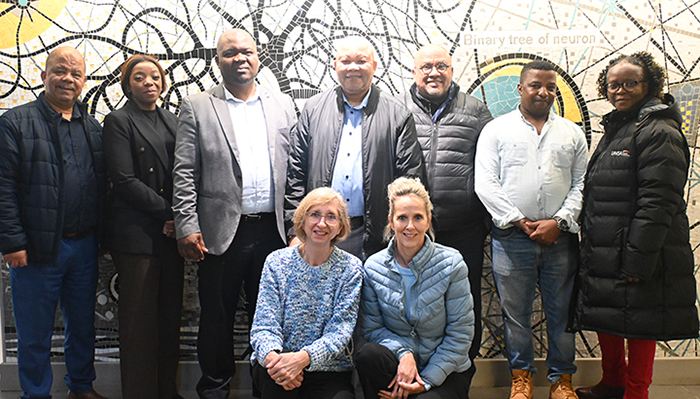
Staff from Unisa’s Western Cape region and the university’s Department of Social Work
On 28 and 29 July 2025, the Unisa Department of Social Work, in collaboration with the university’s Western Cape region, hosted a landmark continuous professional development (CPD) event for social work supervisors and managers at the Unisa Cape Town campus.
This event brought together fifty of the sector’s most experienced practitioners, all of whom create supportive environments for Unisa students within their respective organisations, as the students complete their practica. The two-day Supervisor Training Programme was organised to provide a platform for regional stakeholders to learn from and share their experiences.
The diverse delegation included social work practitioners from the Department of Social Development, the Department of Correctional Services, NICRO, and various non-profit organisations and private practitioners. Over the years, many of these organisations have taken on the critical responsibility of supervising Unisa’s social work and social auxiliary work students during their mandatory practical placements. This formative period is essential to their social work coursework, where social work theoretical knowledge intersects with the harsh realities of human and community struggles.
This year’s workshop was officially opened by Prof Paul Mbedzi, the Head of Unisa’s Department of Social Work and current President of the South African Council of Social Service Professions (SACSSP). In his opening address, Mbedzi emphasised that the Department of Social Work’s core mission is to "promote the ideals of democracy, social transformation and social justice". Mbedzi welcomed the delegates and asserted that the profession of social work plays a vital role in all communities, as it is dedicated to making positive and lasting changes in the lives of individuals, families and communities. Mbedzi then highlighted the critical importance of continuous professional development within the social work profession, stating that it supports, strengthens and nurtures the next generation of social workers who will carry forward this noble profession and its mission.
Mbedzi was joined on the podium by Motale Nkgoang, the Regional Director of the Unisa Western Cape region, who highlighted the institutional and regional commitment to this CPD training initiative. Nkgoang set the tone by firmly reiterating that personal and continuous development in the social work sector is neither a luxury nor an optional add-on; instead, it should promote agility in growth while upholding professional and ethical imperatives. Nkgoang emphasised that social work should embody an ethos of care while delivering competent Unisa graduates who can provide ethical and compassionate rigour to organisations and communities.
The critical importance of supervision
Although universally acknowledged, the importance of social work supervision is often poorly understood.
Traditional social work supervision methods are frequently rooted in strong expert-apprentice hierarchical models where authority and expertise prioritise administration. However, the importance of practice agility, context, feedback, feed-forward and collaborative relationships between supervisor and supervisee is also critically important, especially in modern-day social work practices.
The workshop presentations followed and highlighted precisely this: the contested interplay between complex caseloads and actual practice. Further presentations of the day highlighted the necessity of having essential and supportive infrastructures in place, both in office spaces and within society. Social workers often operate at precarious intersections where crises, poverty, addiction and trauma intersect and collide with larger socio-systemic failures in communities.
Prof Anri Adlem and Dr Goitseone Leburu provided workshop delegates with the foundational pillars of supervision, re-introducing key concepts and core functions of supervision in administrative, educational and work-related contexts. These theoretical foundations led to interactive discussions where professionals worked in small groups to share current practices, challenges and solutions. This interactive group activity emphasised the real-world application of supervisory functions, allowing workshop participants, not only from academia but also from diverse fields such as child protection, correctional services, mentor-mentee relations and education, to share their experiences.
The second day presented a more nuanced perspective, as Prof Petro Botha presented a session titled "Supervision through a Lens of Mentoring and Coaching". In Botha’s session, the primary focus shifted from authoritarian oversight to the relationship between social workers and supervisors in the workplace. This was followed by a role-play activity between supervisors and supervisees, that were open to immediate and constructive feedback and critique.
Botha’s session was followed by Dr Rebecca Skhosana’s presentation, which focused on the critical ethical issues in social work, followed by Adlem’s presentation on the technical aspects of report writing. The sessions of both Botha and Skhosana highlighted the dual responsibilities that rest on the shoulders of social work supervisors, as they continue to ensure professional accountability and safeguarding client wellness and welfare in the workplace.
Stakeholders from the non-profit sector found this particularly valuable, as many NPOs operate with limited resources and high caseloads. Organisations expressed gratitude for this opportunity, as the accredited CPD training offered their staff high-level professional development training that directly enhances their organisational capacity and standardises good practices for supervising Unisa students.
The ripple effect of CPD training on WIL and practica investment
The positive feedback from delegates was overwhelming and pointed to the need for more sessions with Unisa staff members. One participant remarked, "The role-play session opened my eyes to new ways of supervision. It provided me with valuable tools to handle difficult conversations with clients and my supervisees. This was exactly the kind of practical support we need." A delegate from the Department of Correctional Services noted, "At times, we work with challenging cases. This interaction with our peers provided us with a safe space to share and to learn from others. It’s reassuring to know that regardless of the organisations that we work for, we face similar challenges and can develop shared strategies to serve our clients better."
These sentiments share the immense value of a mega-university such as Unisa. Through training and connecting with mentors and supervisors of the Unisa student practica cohort, the university was able to convene these diverse actors through an ecosystem of academic, professional and social care. The workshop offered by Unisa allowed for scale and reach, elevating the quality of Unisa’s own students’ practical education and mentorship throughout the sector. Unisa student practica supervisors return to their departments, NGOs and practices, not just with a certificate, but also with enhanced skills, renewed confidence, and a strengthened network.
The workshop concluded with a formal evaluation and a vote of thanks, but the real work is just beginning. Supervisors returned to practice with the knowledge that Unisa support extends far beyond the virtual classroom. Support, guidance and care will always be part of the true meaning of being "in the service of humanity".
* By Jacques du Toit, Unisa Western Cape
Publish date: 2025-10-20 00:00:00.0


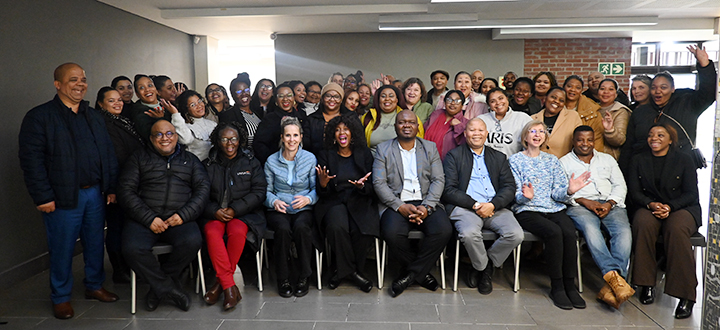 Unisa trains social work professionals to strengthen partnerships
Unisa trains social work professionals to strengthen partnerships
 Unisa partners with tech entities to enhance Africa's digital future
Unisa partners with tech entities to enhance Africa's digital future
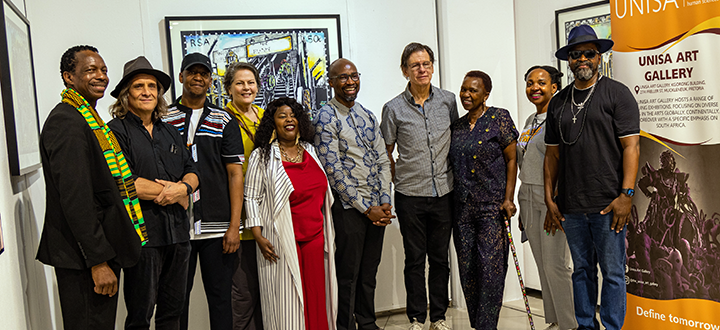 Interrogating the boundaries of knowledge through art
Interrogating the boundaries of knowledge through art
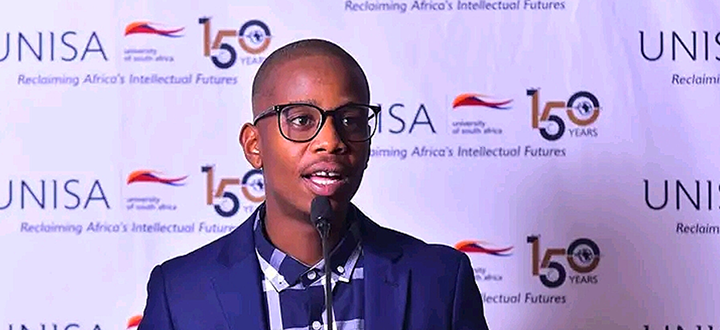 Young Unisan recognised by leading South African newspaper
Young Unisan recognised by leading South African newspaper
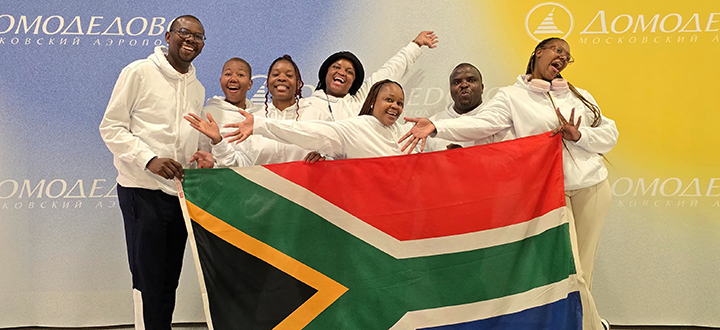 Unisa strengthens cultural ties with the Russian Federation
Unisa strengthens cultural ties with the Russian Federation